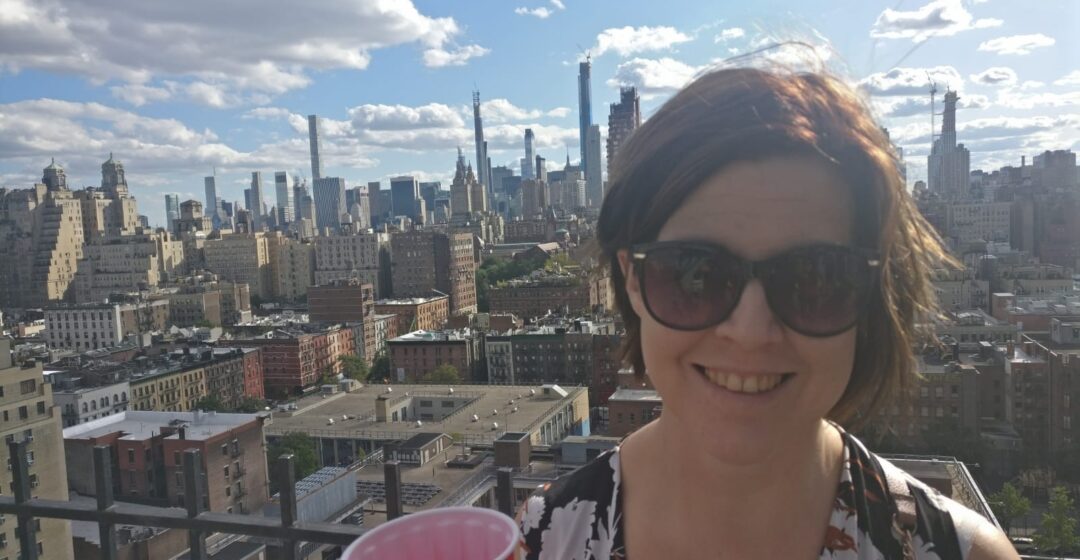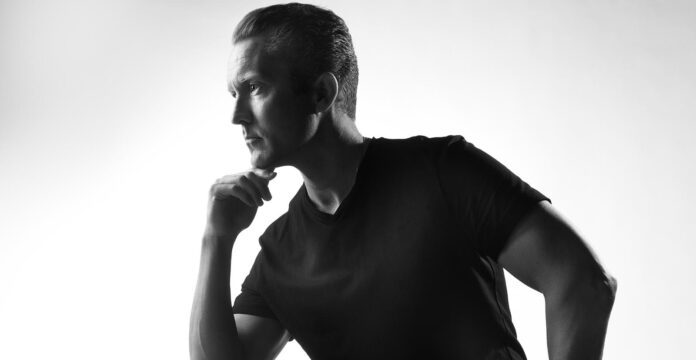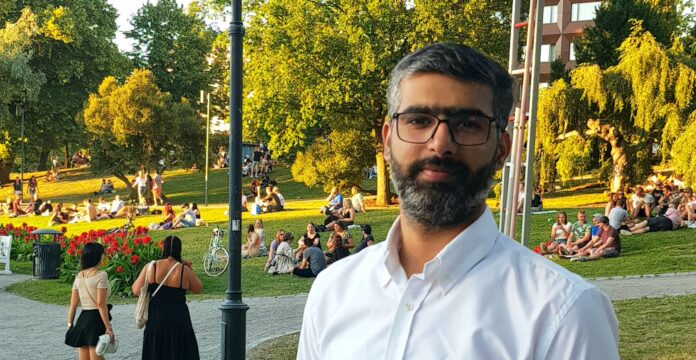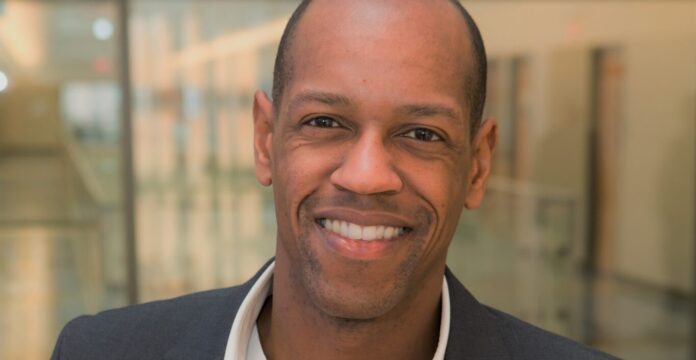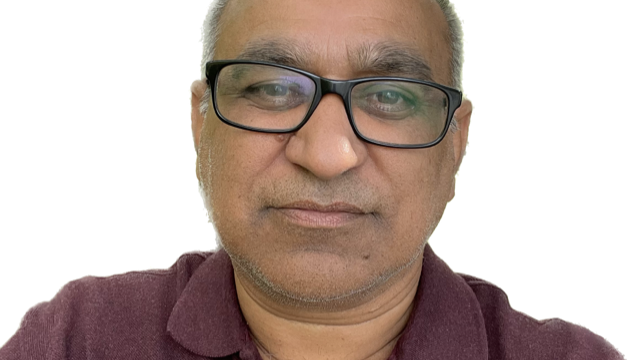Image: “My postdoctoral research project will be conducted at New York University as soon as the pandemic allows. This photo was taken in Manhattan, one of my favorite places in the world, in fall 2019.”
This series introduces the members of University of Vaasa’s InnoLab research platform. Today we’re meeting Kirsi Cheas.
What are you?
I’m a postdoctoral researcher focused on collaborative investigative journalism. In addition to my research project, I am an at-large board member of the U.S.-based Association for Interdisciplinary Studies (AIS), and founder and president of FINTERDIS – the Finnish Interdisciplinary Society.
Your title at InnoLab is visiting postdoctoral researcher, but what exactly do you do?
My new project, sponsored by the Helsingin Sanomat Foundation, examines how technological innovations can facilitate collaboration between journalists, human rights activists, and academics across the U.S.-Mexico border, investigating and exposing abuses against Central American asylum-seekers in the region.
Sounds like you are quite involved. Why bother?
What increasingly bothers me–in academia, in the media, in society more broadly–is filter bubbles. I have always been troubled by this kind of intellectual isolation: the persistence of tribes and territories, which determine the scope and limits of our thinking. I think we must make constant effort to break out of such bubbles, actively exploring new areas and unexpected ideas by different people. This is why my research aims to find novel ways for journalists, activists, and academics specialized in different fields to work together and to learn from each other. Of course, our current era is also increasingly characterized by “misinformation bubbles,” which triggered my focus on investigative journalism and factual reporting.
Topical! So how did you end up where you are now?
My title at InnoLab is “visiting” postdoctoral researcher, because I was originally supposed to conduct this two-year project at New York University. Due to Covid-19, I am stuck in Finland, and I felt that I needed a research environment in my home country as well. So I am a “visitor” until I can hopefully move to New York in August.
When I learned that I couldn’t start my postdoc project in New York as planned, InnoLab instantly came to my mind. I discovered the existence of InnoLab in 2018, when its former director Mari K. Niemi moderated a panel at a Fulbright Finland Foundation event where I participated as an alumna. I was intrigued by InnoLab’s commitment to low hierarchies, innovation, and stakeholder collaboration as these values also guide my work and thinking. I also still have an affiliation with the University of Helsinki, which is where I completed my PhD in Latin American Studies in 2018. But as said, I like to explore new territories and meet new people with diverse backgrounds. So, when InnoLab welcomed me as a “visiting postdoctoral researcher,” I was thrilled. . So for now, InnoLab is my “home base” for all my interdisciplinary initiatives as well.
Good to have you with us! Now, imagine your phone rings. It’s the call you’ve been hoping for – what is it about?
This would be a call from New York University’s Department of Media, Culture, and Communication, telling me they can now receive me “physically” in Manhattan as the pandemic is finally under control. And in that same call, they would tell me that I can now also travel to California and Arizona, where a number of amazing colleagues and journalists have promised to guide me and to introduce me to new people on both sides of the U.S.-Mexico border. I highly appreciate digital connections, but I also think that nothing can replace in-person communication.
Just kidding, it’s actually a journalist. They’re finally doing a story on that one topic you’ve always wanted to give an interview on! What do you say?
This would be a story about Central American asylum-seekers, addressing the root causes of their forced migration movement to the U.S. Numerous scholars have emphasized that the extreme poverty and violence that characterizes Central America, pushing hundreds of thousands of people to flee each year, in many ways results from U.S.’s involvement in the region. But this information is usually missing in the reporting. As Salvadoran investigative journalist Oscar Martínez has noted, knowing is the beginning of the solution.
Also I would make sure to tell that journalist to call other scholars besides me. I can expertly talk about the genocide of indigenous people in Guatemala by death squads backed by the CIA during the Cold War, and the persisting poverty and violence in Guatemala, for instance. But I have colleagues who would be much more prepared to talk about, for example, the brutal gang violence in El Salvador. All this is relevant to understand those root causes and to increase factual knowledge of the (American) public. This shouldn’t be just one story – it would have to be a story ensemble, created collaboratively between multiple contributors specialized in different aspects of the issue.
Heavy, but important stuff. Too bad you can’t be the resident expert on every topic. What would you like to learn more about?
Technology! I am passionately interested in innovations, but at the same time, I am shy with technology. I always end up in some kind of trouble when trying to use a new software. I think this happens because I’m so convinced in advance that something will go wrong that it actually happens. Then, I’m embarrassed to ask for help.
I think that might be more common than you think. Is that something I, too, should be concerned about?
No one should be worried about this, actually. The older I get, the more I realize that it’s always OK to ask. It’s OK to make mistakes too, as long as we recognize our mistakes and learn from them. I’ve stopped taking myself so seriously. If someone laughs at me because I don’t know something or because I accidentally messed up, that’s OK. Also, asking the kinds of questions to which we already half-know the answer is boring. I’ve decided to be open about how clueless I am about many things. I have already learned tons this way. And InnoLab is the perfect place to be asking and learning about technology!
Words to live by. Now recommend me something – anything!
Sushi with fried plantains.
Any last advice for being both an effective researcher and a happy office worker?
Use noise-cancelling headphones! Thanks to my noise-cancelling headphones, I haven’t experienced any conflicts, while “sharing office” with my husband and child at home throughout Covid-19. With the headphones, you can isolate yourself when you need to concentrate, without having to shush others. But you can also take them off, whenever you’re in a social mood yourself!
From the perspective of Kirsi’s co-workers: What makes you appreciate her as a colleague?
“Kirsi is fantastic for bouncing ideas around and working out how to bridge gaps between knowledge, institutions, and people. She’s always got great insights and it’s fun to get to work with her.”
“One of the things I most appreciate about Kirsi is how she pours her heart and soul into the projects she embraces. Her dedication to her work–and to her family and friends–is truly remarkable!”
“Kirsi is a passionate, determined, courageous, and warm-hearted person who pursues interdisciplinarity both in her own research and as a pioneering activist.”
